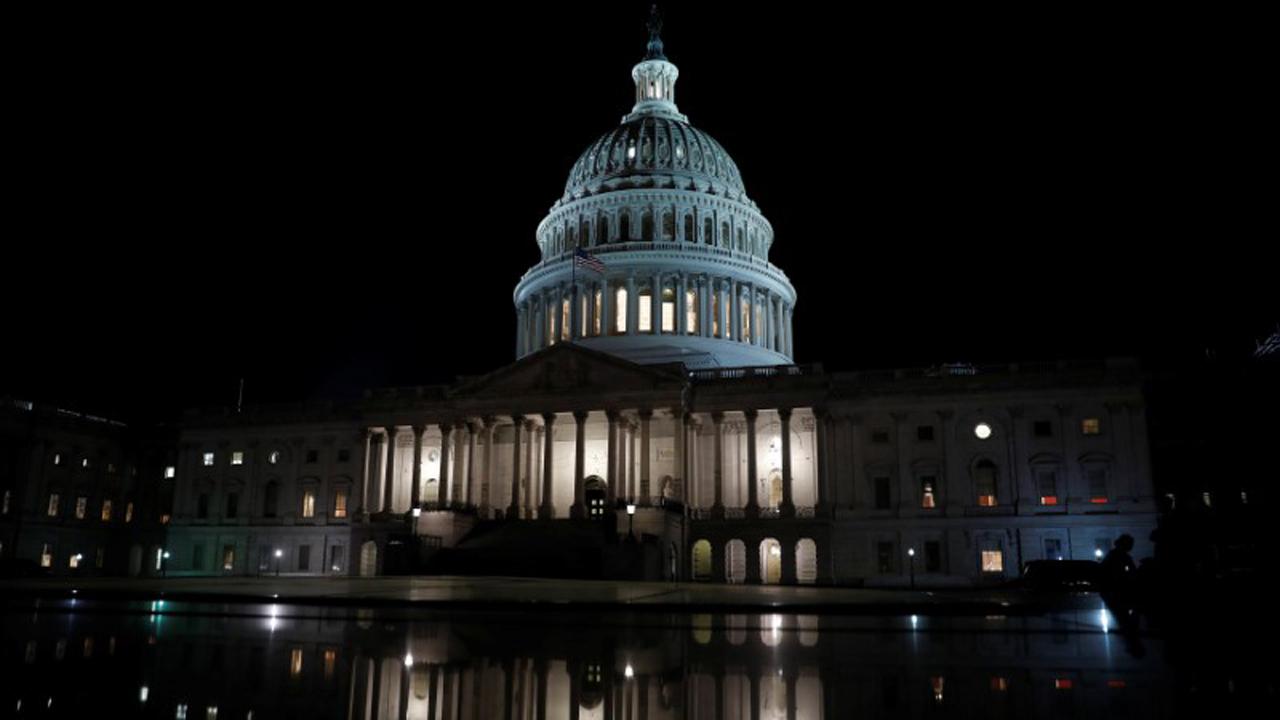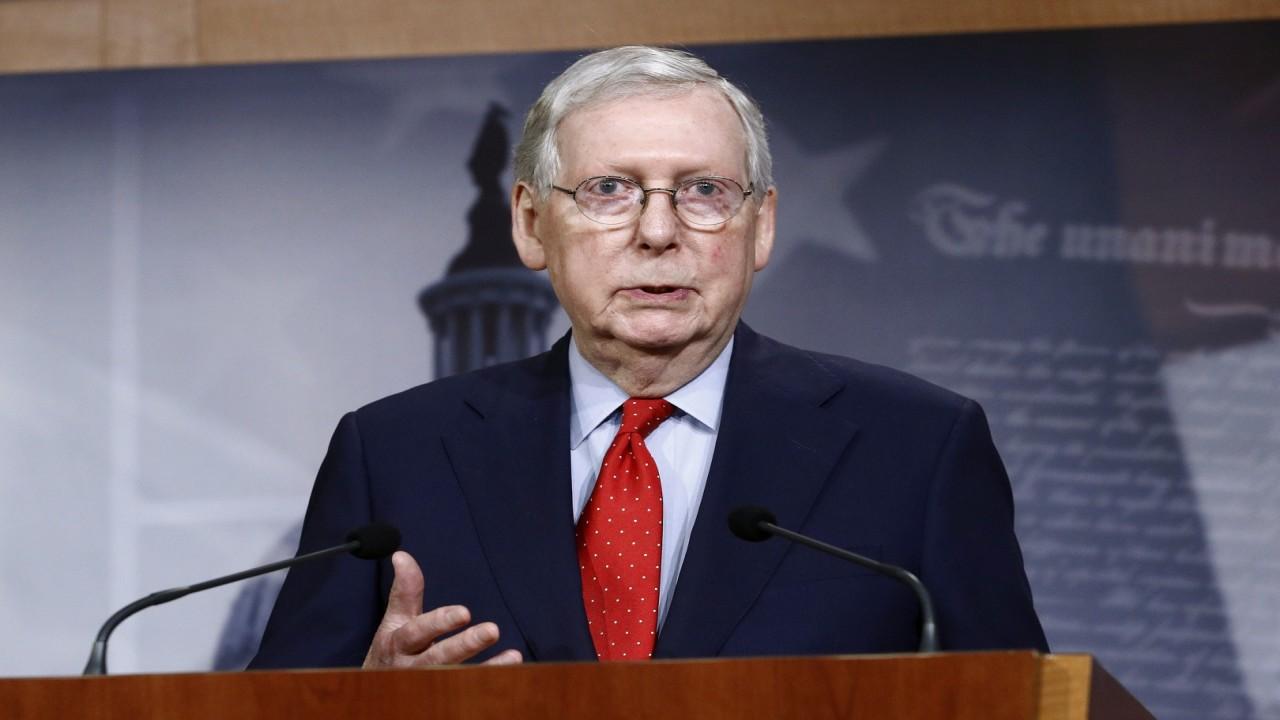White House explores $5,000 coronavirus stimulus check in exchange for delayed Social Security benefits
Typically, the earliest Americans can start collecting Social Security benefits is at 62
Will Congress pass another stimulus package?
FOX Business' Hillary Vaughn says House Democrats are preparing to roll out an additional phase of funding in a CARES Act 2.0 bill that could exceed $2 trillion. Rep. Jim Banks, R-Ind., later argues he doesn't want to spend more money without cutting funds in other places.
Get all the latest news on coronavirus and more delivered daily to your inbox. Sign up here.
The White House is reportedly considering a new proposal to help alleviate the economic pain inflicted by the coronavirus pandemic: Letting struggling Americans take an advance on their Social Security benefits.
Senior economic officials at the White House are exploring a stimulus measure backed by conservative scholars at the right-leaning American Enterprise Institute and Hoover Institution, according to The Washington Post.
Written by Andrew Biggs and Joshua Rauh, the plan calls for allowing Americans to choose to receive checks of up to $5,000 in exchange for a delay of their Social Security benefits. The so-called "Eagle Plan" proposed an overhaul of federal retirement programs in exchange for direct cash payments to some workers.
Typically, the earliest Americans can start collecting Social Security benefits is at 62; if you tap the benefits earlier, Social Security reduces your payments.
The White House did not immediately respond to a request for comment, but a spokesperson told the Post that "President Trump has been clear that while he is in office, the American people can feel secure without a shadow of a doubt that he will completely protect Social Security and Medicare — end of story, full stop."
HOUSE DEMOCRATS PROPOSE $2,000 CORONAVIRUS STIMULUS PAYMENT PER MONTH
Rauh and Biggs outlined their proposal in an opinion piece published in The Hill at the end of April. Under the plan, the Social Security benefits would be delayed for "at most three months" for the typical individual in exchange for a $5,000 check. Individuals that choose to not receive a check would keep their Social Security benefits completely unchanged and would incur no delay.
"The loan amount would in effect be drawn from the Social Security trust fund, but the interest rate is designed to fully reimburse the trust fund for the balance of the loan plus interest," they wrote.
McConnell to insist on narrow coronavirus bill from House Democrats: Report
Fox News contributor Robert Wolf discusses whether now is the time for more coronavirus stimulus from the federal government as Senate majority leader Mitch McConnell says he will reportedly insist on a narrower bill from House Democrats.
The report comes as Democrats and Republicans negotiate a fifth stimulus package. Already, the federal government has passed four bills totaling nearly $3 trillion, including the $2.2 trillion CARES Act, which expanded unemployment benefits by $600 per week for up to four months; sent a one-time payment of $1,200 to Americans earning less than $75,000; and established the Paycheck Protection Program.
FED'S KAPLAN WARNS OF 'HISTORIC' CONTRACTION, SEES NEED FOR MORE STIMULUS
House Democrats plan to introduce legislation that includes nearly $1 trillion for states and local governments to cope with lost tax revenue from the crisis, according to The Wall Street Journal. Democrats also back additional direct relief to households.
"We must put more money in the pockets of the American people," House Speaker Nancy Pelosi, D-Calif., wrote in a letter to Democratic colleagues on Sunday night. "Direct payments, unemployment insurance, rental and mortgage help and student-loan assistance are essential to relieve the fear that many families are facing."
But Treasury Secretary Steven Mnuchin said Sunday the Trump administration is in no rush to pass another aid package.
CORONAVIRUS PANDEMIC DECIMATED THESE INDUSTRIES IN APRIL AS ECONOMY LOST 20.5M JOBS
"What the president and I are now saying is we spent a lot of money, a lot of this money is not even into the economy yet," he told "Fox News Sunday." "Let's take the next few weeks — I'm having discussions with both the Republicans and the Democrats to understand these issues. The president and I are having conversations with outside people."
Last week, the Labor Department said that the unemployment rate in April hit 14.7 percent — the highest since the Great Depression. The grim figure does not include the 7 million jobs lost in the final two weeks of the month.






















